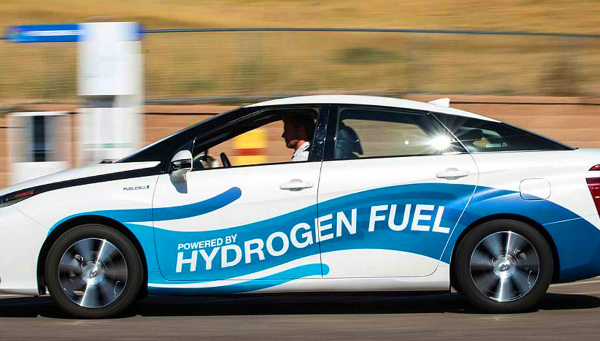New Delhi: Shri Dharmendra Pradhan, Hon’ble Union Minister of Petroleum & Natural Gas and Steel, will formally launch the much-awaited trial run of city buses in the capital city on Hydrogen-blended CNG (H-CNG) green fuel on Tuesday, 20th Oct. 2020. He will inaugurate a compact reformer plant set up by Indian Oil Corporation Limited (IndianOil) at Rajghat Bus Depot-I of DTC.
IndianOil’s R&D Centre had developed a patented compact reforming process for H-CNG production directly from natural gas. The technology has been successfully proved for its benefits concerning emissions, mileage & durability through extensive studies at a demonstration unit installed at its Faridabad campus. Recent studies conducted by the Automotive Research Association of India (ARAI), Pune, have confirmed that 18% H-CNG as fuel ensures 70% reduction in carbon monoxide and 25% reduction in hydrocarbon emissions in heavy-duty BS-IV engines as compared to baseline CNG, besides increasing fuel economy by 4 to 5%.
Hon’ble Supreme Court had taken cognizance of IndianOil’s patented technology and its likely benefits and had advised IndianOil and the Ministry of Petroleum & Natural Gas (MOP&NG), Govt. of India, to conduct trials using 18% H-CNG fuel on 50 buses in Delhi.
Accordingly, IndianOil, under the guidance of the Petroleum Ministry, has set up a semi-commercial plant of 4-tonnes per day capacity at Rajghat Bus Depot-I, along with dispensing infrastructure by Indraprastha Gas Ltd. (IGL), for conducting a study on the use of H-CNG fuel in 50 BS-IV compliant CNG buses. International Centre for Automotive Technologies (iCAT) will be the third-party accredited laboratory for performance testing of the buses, while the Environmental Pollution (Prevention and Control) Authority for Delhi & NCR (EPCA) has been designated as the monitoring agency.
After the six-months trial period, a detailed performance report will be compiled incorporating the fuel economy and emissions data of the trial buses run with CNG and H-CNG fuel mixtures for submission to EPCA/Hon’ble Supreme Court.
In India’s quest to promote Hydrogen as a clean fuel for the mobility sector, Hydrogen-blended CNG (H-CNG) is emerging as an excellent interim technology for achieving emissions reduction and import substitution. H-CNG can be used in existing IC engines without major modifications in the engine architecture. Also, refueling of H-CNG blends in vehicles can be achieved with minimum modifications in the infrastructure that is currently under use for dispensing CNG.
A brief on IndianOil’s patented H-CNG Production Technology
Globally, Hydrogen required for blending in CNG (Compressed Natural Gas) is produced through electrolysis of water, followed by high-pressure blending with CNG. This process’s high cost offsets the savings achieved from fuel economy gains compared to baseline CNG.
IndianOil R&D has, however, patented a simpler, cheaper single-step compact reformer technology with several advantages over conventional reforming processes associated with Hydrogen production:
• H-CNG blends can be produced directly from CNG, bypassing the energy-intensive electrolysis process and high-pressure blending costs.
• The flexible and robust process allows the production of H-CNG on-site, in less severe conditions, and under low pressure
• It yields a higher quantity of H-CNG mixture, by up to 4% to 5% compared to the input quantity of CNG.
• The cost of H-CNG production by the above process is about 22% cheaper than conventional physical blending.
Source: PSU Connect
You may also like
-
Dot Simplifies Approval Processes For Telecom Licenses And Wireless Equipment
-
PM to Inaugurate SEMICON India 2024 on 11th September
-
Shri Piyush Goyal Sets 500 Million Tonnes Domestic Steel Production Target by 2034
-
NHAI to Track Around 100 Toll Plazas with GIS-Based Software for Seamless Movement of Traffic at National Highways
-
“Marching Towards Building A Digitally Connected Bharat and An Atmanirbhar Telecom Sector”: Union Minister Jyotiraditya Scindia
